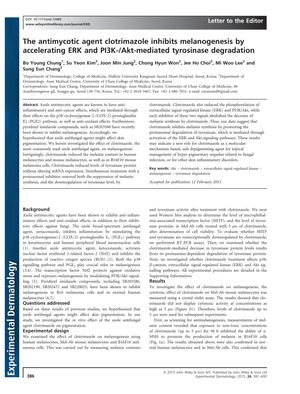The Antimycotic Agent Clotrimazole Inhibits Melanogenesis by Accelerating ERK and PI3K/Akt-Mediated Tyrosinase Degradation
March 2015
in “
Experimental Dermatology
”

TLDR Clotrimazole, an antifungal cream, may safely reduce skin pigmentation by breaking down the enzyme needed for making melanin.
In a 2015 study, researchers discovered that clotrimazole, an antifungal medication, can inhibit the production of melanin (melanogenesis) by promoting the breakdown of tyrosinase, an enzyme crucial for melanin synthesis. This process occurs through the activation of the ERK and Akt signaling pathways. The study, which used human and mouse melanocytes as well as B16F10 mouse melanoma cells, found that clotrimazole reduced melanin content without showing cytotoxic effects at the concentrations used. These results indicate that clotrimazole has potential as a safe topical treatment for hyperpigmentation issues. The exact number of subjects used in the study was not mentioned, as the research was conducted in vitro with cell lines.
